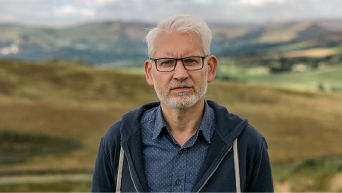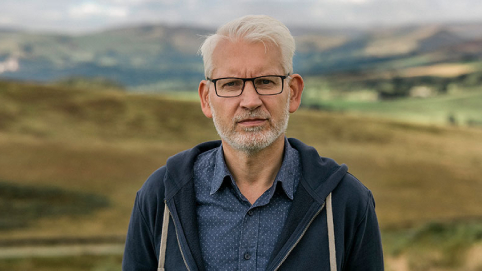‘The 2020s must be the deciding decade of change’: E.ON calls on Government to level-up UK’s low-carbon efforts to achieve net zero




"The next decade will be critical if we are to meet 2050 targets. The decisions we take in the years between now and 2030 will determine whether we are able to gain sufficient momentum to achieve success. We must not forget this is a marathon, a 30-year ambition. We don’t have to do it all immediately, but we do have to get moving now."
Michael Lewis, Chief Executive of E.ON UK
- UK’s largest electricity provider warns UK will miss 2050 carbon goals if it continues on current trajectory
- Detailed policies, stricter regulation and inspiring hearts and minds of people and businesses are key to getting back on track
E.ON has warned the UK will miss its 2050 carbon goals if the Government does not take immediate action to clarify policies, introduce stricter and more urgent regulation, and win the hearts and minds of consumers and businesses across the nation.
In its new report, ‘The Carbon Countdown: Road to 2030’, E.ON explores the key areas where the UK must move faster and with greater focus in this decade if it intends to meet its 2050 carbon goals.
Focusing on urgent needs, the report looks at the state of play in the UK’s homes, workplaces and across entire cities, presenting ten key recommendations to Government.
Now we are firmly within the deciding decade of change, the scale of the challenges to meet 2050 ambitions is clear: the collective aspiration to reduce emissions must be catalysed into tangible action among homeowners; which means millions of homes being improved each and every year for the foreseeable future. The UK also has a business and skills challenge to ramp up capacity to install heat pumps as a new cleaner heating source – going from around 30,000 currently to at least 600,000 annually by 2028 and 1m per year from 2030; and giving drivers greater confidence to switch to electric vehicles. And this is just the tip of the iceberg.
When asked at a House of Commons committee1 whether the UK was making sufficiently quick progress towards achieving the target, Climate Change Committee chairman Lord Deben said: “We are clearly not. In almost every sector we are failing . . . we have simply not done the radical things that need to be done.”
Michael Lewis, E.ON UK Chief Executive, said: “The next decade will be critical if we are to meet 2050 targets. The decisions we take in the years between now and 2030 will determine whether we are able to gain sufficient momentum to achieve success.
“Government has shown significant commitment and the Prime Minister’s ten-point plan gives a sense of the scale of change needed but the pace needs to step up if we are to realise this ambition and secure the economic benefits for the UK. We must not forget this is a marathon, a 30-year ambition. We don’t have to do it all immediately, but we do have to get moving now.”
Carbon Countdown: Road to 2030 provides key insight and policy advice in the high impact areas of homes, businesses and cities, including:
- Provide better support for businesses by introducing a ‘sell-by date’ on products like gas boilers for UK manufacturers to prepare; provide clarity on the final delivery model for an energy efficiency scheme to incentivise early action from small businesses; create a more sustainable carbon leakage protection framework for the UK that prompts bigger businesses to invest in a sustainable low carbon future.
- Create much stronger building standards to ensure all new properties, residential and commercial, are constructed net-zero as standard.
- Develop ‘building renovation passports’ to engage consumers and provide them with personalised actions to decarbonise their homes over the next 10-15 years.
- Tax polluters in a fairer way. Extend carbon pricing to fossil fuel domestic heating but use the proceeds to take low carbon levies off domestic electricity bills so customers don’t pay more to heat their homes.
Michael Lewis added: “If you ask people whether they want a cleaner, more sustainable future, the answer will invariably be ‘yes’. In that regard we are, as a nation, together in a shared purpose. What most people don’t know is, at our current pace, we haven’t got a hope unless Government catalyses faster tangible change.”
“Our Carbon Countdown: Road to 2030 white paper looks at the changes needed in our homes, our businesses and our city infrastructures to make this happen. We examine how far and how fast that acceleration needs to go in order to get there, what we can all do to speed things up, and policies needed to ensure the country is able to achieve those ambitions.
“Getting to net zero carbon by 2050 was always going to be a challenge, even before Covid-19 sent the world economy into turmoil. But the decisions we take, the investments we make, and the path we follow in the next ten years will decide whether we are on the right road to meet the goal.
“Net zero by 2050 is achievable. With the right investment climate, business will positively respond and bequeath a more sustainable future to our children that will secure long-term economic benefits for the country as we increasingly benefit from home grown energy production. We all have a moral responsibility to play our part to make sure we get there and address this climate crisis.”
The report’s ten full policy requests are as follows:
- Develop and provide a more detailed roadmap to 2050
The Government’s ten-point plan needs to inspire concrete policies to deliver those net zero targets. For example, introducing fixed dates for all houses to meet minimum energy performance standards or for when cities should ban the use of fossil fuel vehicles. - Introduce a sell-by date for gas boilers
As seen with petrol and diesel cars, an end to fossil fuels gives consumers and heating manufacturers/installers clarity to help them prepare for a low carbon future. - Building standards should mean all new properties are zero-carbon
Tougher regulations are needed to mandate that all new properties – residential and commercial – must be built to zero-carbon standards. - Simplify schemes that support most in-need households
Making sure householders understand the help to which they are entitled will lead to a better take up of the support on offer. Clamping down on rogue traders and low-quality suppliers also means homeowners have confidence in investing in a better, more comfortable home. - Prompt householders to take action now
A high profile communications campaign can explain to householders the need to change and the help available to them. That change should be aspirational, a positive choice towards a cleaner future, instead of victimising carbon heavy households. - Put a greater focus on small business
There needs to be clarity on an energy efficiency scheme incentivising early action from small businesses and recognising their specific needs. - Give consumers confidence in their renovation journey
‘Building renovation passports’ give homeowners a roadmap to decarbonisation over the next 10-15 years. Specify what actions they will need to take, and when, based on personalised information. - Polluters should pay – but in a fair way
Government subsidies for low carbon electricity and vulnerable customers are weighted on to the electricity side of the bill. Putting a carbon price on fossil fuel heating, and taking policy costs off electricity bills, means cleaner electric heating becomes cheaper and customers don’t pay twice. - Decarbonise – but protect –UK industry
Create a more sustainable carbon leakage protection framework for the UK which levels the international playing field and prompts bigger businesses to make changes, such as through a carbon border tax adjustment and redeploying existing incentives by increasing financial support for the decarbonisation of UK industry. Ensure carbon reports and assessments (such as ESOS) lead to mandated improvements in energy efficiency and reduced carbon emissions. - Accelerate the rollout of district heating
District heating can provide up to 20% of the country’s heating3 needs but industry needs clarity on exactly who is responsible for development and which parts of the country should be prioritised. Local zoning plans for the largest conurbations should outline which areas are most appropriate for district heating or for other forms of cleaner energy.
E.ON is the UK’s largest electricity supplier and part of the E.ON Group, one of the world’s leading energy companies with more than 53 million customers across Europe. It was a pioneer in large-scale renewable energy across Europe and the USA and is now playing a decisive role in the transformation of the new energy world where customers play a greater role as part of a networked community.
As well as offering 100% renewable electricity as standard2 to residential customers, E.ON provides a range of sustainable and smart home solutions including energy efficient boilers, smart thermostats, solar and battery technology and heat pumps.
For more information visit eonenergy.com
Notes to Editors:
- House of Commons Business, Energy and Industrial Strategy Committee oral evidence, 2nd July 2020
- Electricity backed by 100% renewable sources. All our customers' homes get 100% renewable electricity, at no extra cost. Electricity sourced from E.ON’s renewable generation assets, supply agreements with independent UK wind generators and the purchase of renewable electricity certificates. The electricity supplied to homes comes from the National Grid and DNOs.
- https://www.theade.co.uk/assets/docs/resources/Heat%20Networks%20in%20the%20UK_v5%20web%20single%20pages.pdf
Legal information
The information (including any forecasts or projections) contained in these press releases (the "Information") reflects the views and opinions of E.ON on the date of the press release. The Information is intended as a guide only and nothing contained within these press releases is to be taken, or relied upon, as advice. E.ON makes no warranties, representations or undertakings about any of the Information (including, without limitation, any as to its quality, accuracy, completeness or fitness for any particular purpose) and E.ON accepts no liability whatsoever for any action or omission taken by you in relation to the Information. Any reliance you place on the Information is solely at your own risk. These press releases are the property of E.ON and you may not copy, modify, publish, repost or distribute it without our permission. © E.ON